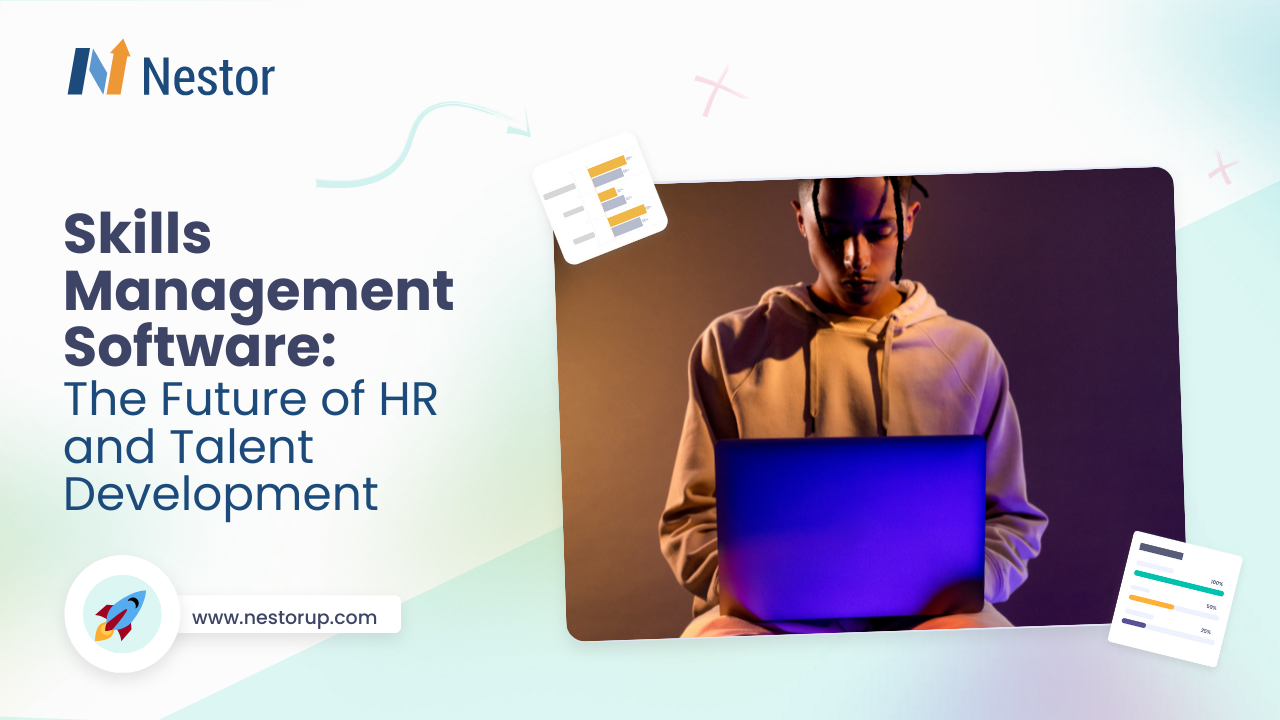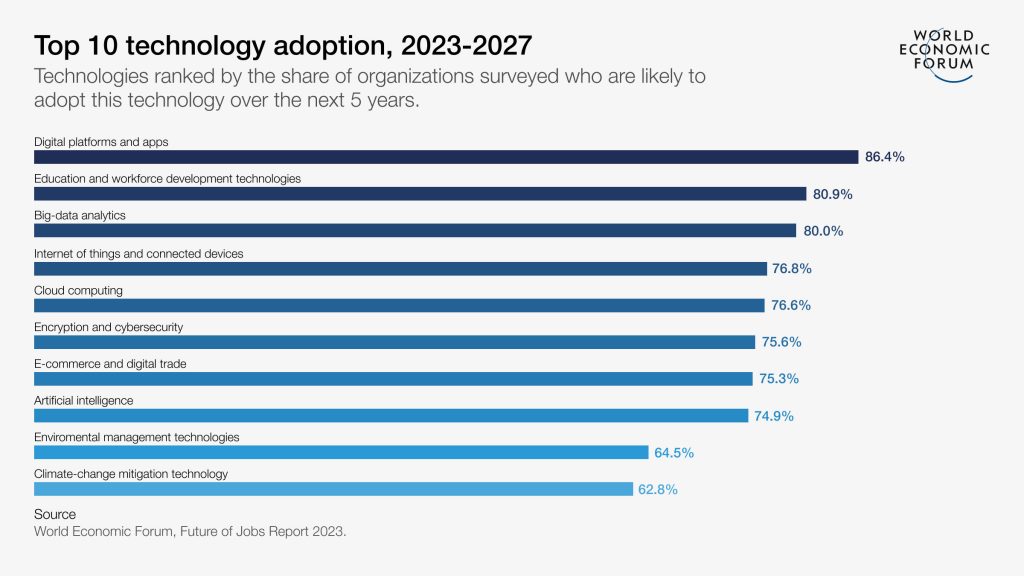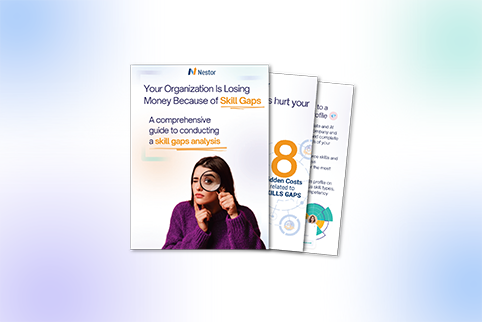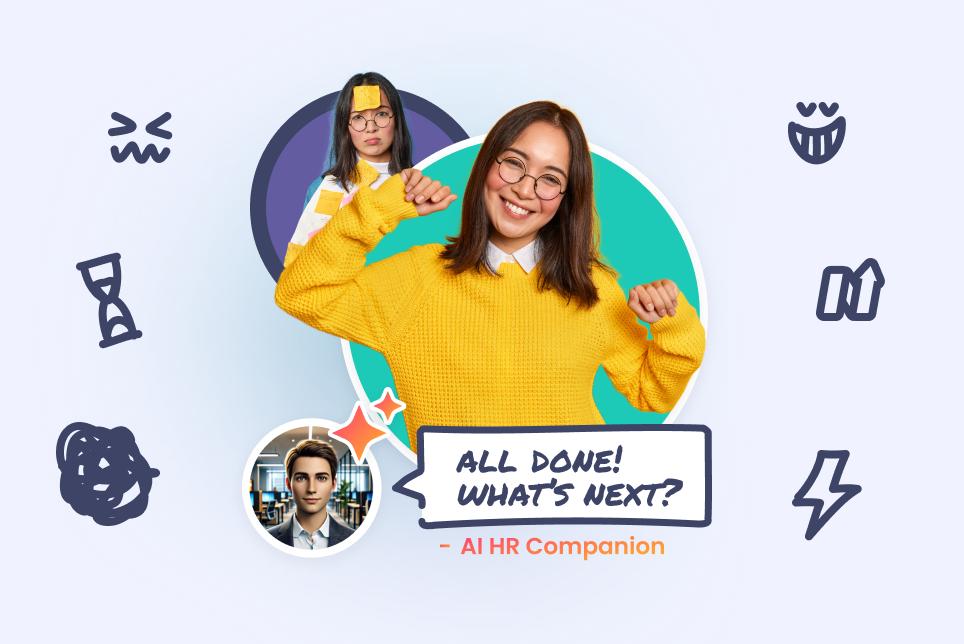Skills Management Software: The Future of HR and Talent Development
10 min read

In today’s rapidly evolving business landscape, effectively managing and harnessing the skills of your workforce is crucial for success. And this is where skills management software comes into play.
With the power of technology, organizations can now streamline and optimize their talent management and development processes, ensuring that employees’ skills are aligned with business objectives.
In this article, we’ll explore the world of skills management software, its benefits, and how it can revolutionize the way organizations track, develop, and leverage the skills and expertise of their workforce.
Whether you’re a small start-up or a large enterprise, understanding the capabilities of skills management solutions is essential for staying competitive in a skill-driven economy. So, let’s dive in and discover how this innovative tool can empower your organization to thrive in the digital age.
Why is skills management software a business imperative?
Identifying, evaluating, and managing the skills of your workforce is important for a plethora of reasons, from making the most out of your talent to increasing engagement and performance, from boosting innovation to ensuring long-term success.
But it is worth re-emphasizing that skills will, in many ways, decide which businesses thrive and which struggle in the future. According to McKinsey: “Organizations already face a severe shortage of key talent, and 90 percent say they will have a meaningful skills gap in the coming years.”
The undeniable status of skills management as a business imperative is also backed by findings from the World Economic Forum’s 2023 Future of Jobs Report:
44% of workers’ core skills are expected to change in the next five years.
Insights from the same report further prove that skills management software and similar digital solutions represent the future of work, being part of the two most likely technologies to be adopted by organizations by 2027:

What is skills management software?
Skills management software, also referred to as competency management software, is a powerful tool designed to help organizations gain visibility, understand, manage and efficiently optimize the skills and knowledge of their employees. With this type of solution, HR departments can identify, track, and align the abilities of their workforce with short- and long-term business objectives.
To provide this functionality, skills management software creates a central repository of employee data, which can include relevant details such as:
- skills
- proficiency levels
- work experience
- certifications
- education
This data is used to generate a comprehensive profile of each employee, which outlines their core strengths, weaknesses, as well as their potential areas for development (and, in some cases, their aspirations or interests).
Key features of skills management software
While the specific offerings of skills management solutions can vary depending on multiple factors (e.g., the needs of an organization, the software vendor), there are several main or must-have features that most competency management applications provide. These features can include but aren’t limited to:
Real-time database of skills and competencies
Tracking, measuring, or visualizing skills can only happen after you create a centralized database, which is updated regularly (or, ideally, in real-time) as the capabilities of your workforce evolve. This type of skills database is also called a skills taxonomy or skills library.
A simple yet powerful module of skills management software, it brings together in a structured and organized manner data on employee skills, competencies, qualifications, or personal traits, which will provide a much better understanding of the current capabilities within the organization, and the need for future development.
Skills mapping and competency frameworks
Another must-have feature of any skills management solution is the ability to map specific competencies and skills to job roles through a competency framework.
Competency frameworks involve defining the specific skills, knowledge, behavior, and attributes required for different roles within the organization. They should be easily customizable to meet the specific needs of businesses across various industries.
Once defined, a competency framework will act as a stepping stone, empowering HR strategists to:
- assess employee skills against (future) role requirements
- identify skill gaps and training needs
- create personalized development plans
- clarify expectations for employees
Skills evaluation and tracking
Any modern skills management platform should include various tools and modules that enable HR and people managers to simplify and improve their (skills or performance) evaluation process.
These tools don’t need to be complex. Self-assessment forms or 360-degree feedback are great examples of simple but powerful ways to gain insights into the output and capabilities of each worker.
Performance reviews can also be integrated into skills management software and benefit from the centralized skills data, as well as the development reports, included in the platform.
Skills gap analysis
While it could easily be included as a sub-feature of skills matrices or competency frameworks, identifying and understanding skills gaps is too important a process and should be integrated into any skills management solution.
The end goal of this analysis is to provide actionable insights and steps to bridge the existing skills gaps and to make fundamental decisions about the best-fit upskilling or reskilling initiatives.
Skills matrices are powerful tool in that direction. They offer a visual and easy-to-understand representation of each employee’s skill set and their level or proficiency in each skill. Most often, skills matrices take the form of a grid or a chart.
With the help of a skills matrix, companies can easily identify and visualize not only the individual skill gaps but also the skills distribution across employees. The skills matrix can be often used for immediate skill gap analysis and decision-making related to skill distribution within teams or projects.
Advanced filtering
Having a database of skills and proficiency levels isn’t very useful without the ability to quickly sort or find employees based on specific skills.
This feature will come in handy for any organization, but especially for those that have an agile workforce and bring together people from different departments into temporary teams to tackle various projects.
Development frameworks
Just like competency frameworks, development frameworks define the specific approaches, stages, and steps needed to facilitate the growth and advancement of employees within the company. They are the foundation for individual (or group) development plans.
Development frameworks need to be flexible and customizable. They often highlight different types of career paths, growth actions and steps employees need to take to develop in their role, take on new responsibilities or make the switch to new job opportunities.
Development planning
The ability to design and manage personalized employee development plans from the same skills management platform makes the entire talent management process easier and more cohesive. It also ensures that development plans are customizable and aligned with each employee’s aspirations and the organization’s objectives.
An employee development plan acts as a roadmap for their professional growth and should include quantifiable goals, areas for improvement, and relevant development opportunities. It should also establish a timeline for achieving these objectives and track their progress over time.
Progress tracking and reporting
Real-time updates on employees’ progress and reports (or dashboards) on their development should be a feature of skills management software.
This process will provide insights into the effectiveness of development or training programs and allow decision-makers to make adjustments and help employees reach their learning goals.
Integration with other HR systems
When skills management software integrates with other HR platforms, such as learning or performance management systems, they offer an additional layer of opportunities and allow HR staff to make the most out of all the existing tools at their disposal.
For example, a skills management solution could simplify and improve the performance evaluation process by assessing the abilities of individual employees against job expectations. As for the integration with learning systems, it would facilitate the creation and implementation of personalized development opportunities, which are better aligned with the current abilities of each worker.
What are the advantages of skills management software?
The benefits of skills management software aren’t limited to streamlining HR processes and improving efficiency.
As skills and their development are becoming increasingly important in a fast-changing world, optimizing competency management with a dedicated software solution will have a significant impact on overall organizational success. And that’s because skills management software:
- Enables data-driven decision-making: With access to a wealth of data on employee skills and knowledge levels, HR departments can make better strategic decisions about hiring, training, promotions, and talent retention.
- Aligns employee development with business objectives: By creating and maintaining a centralized database of skills with the help of competency frameworks and skills matrices, competency management software ensures that employees will acquire skills that they actually need to be successful in their current jobs, as well as in future roles that may be needed as the organization evolves.
- Improves workforce planning and talent management: Skill management software not only identifies potential talent shortages and skills gaps but also helps HR leaders and managers develop targeted development programs that will address them. This proactive approach ensures the organization has the right talent to achieve its strategic objectives, both now and in the future.
- Supports succession planning: Another benefit of using a skills management solution is streamlining succession planning. HR can quickly identify and start preparing people who have the potential and inclination for leadership roles, ensuring a smooth transition when key positions need to be filled.
- Facilitates compliance and regulatory requirements: With this type of software, HR can check and ensure compliance with the latest industry regulations and certifications. The tool makes it easy to monitor expirations, schedule renewals, and keep the organization in line with regulatory standards.
Nestor: the platform that helps you unlock the full Power of Skills
Nestor is the People Intelligence Platform that helps organizations unlock the Power of Skills to drive workforce agility, high performance, and continuous growth. Nestor enables organizations to maintain competitiveness and lead change by shifting the focus from tightly constrained job roles to dynamic skill profiles.
With Nestor, you can identify the necessary skills for the future of work, map them around your talent, easily assess skills, identify any possible skills gaps before they turn critical and prepare your people for the future of work by upskilling and reskilling them in an ongoing way. Our skills-based approach helps you:
- identify evolving skill needs
- track and evaluate skill levels
- match skill supply and demand
- develop and grow both organizational and people capabilities
We’re also proud of being recognized as the #1 Easiest to Use Skills Management Software in the G2 Spring Awards.
Want to gain increased visibility over the skills of your workforce? Having trouble in assessing the skill levels your employees possess and helping them unlock their full potential? Looking to solve the misalignment between the career growth opportunities in your organization and people’s specific interests? Nestor provides solutions to these challenges!
If you need help getting started, we’re always here to help.










